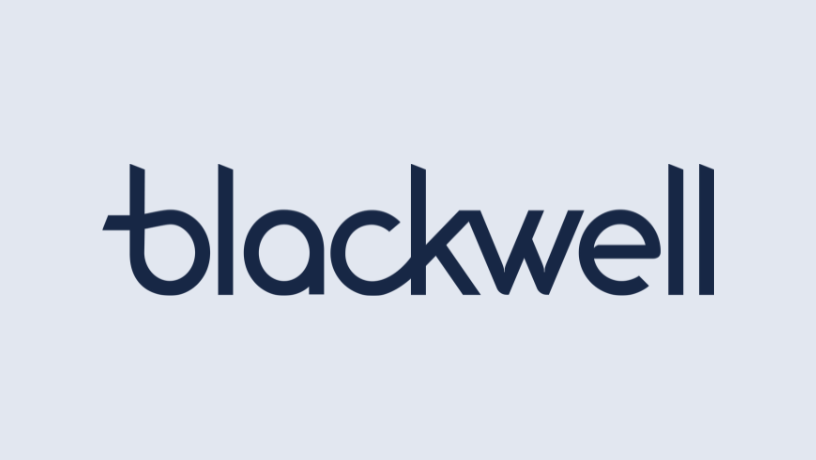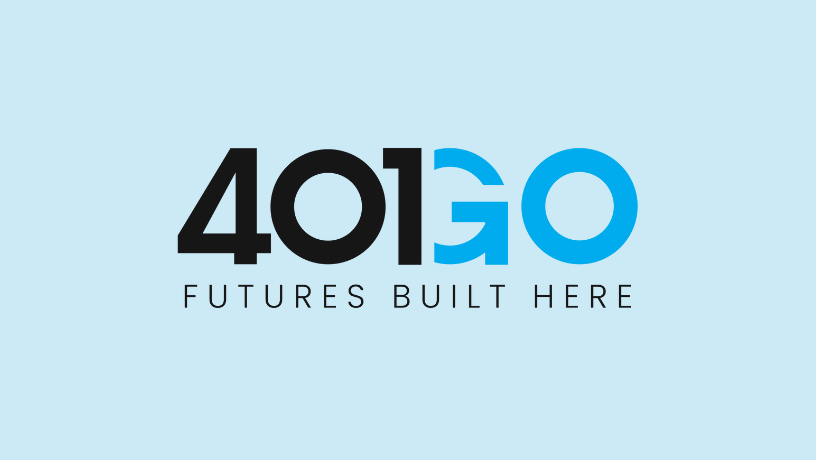Why We Invested: PayGround
Simplified Healthcare Payments for Everyone
PayGround launched in the early days of the COVID-19 Pandemic when 1 in 3 providers still didn’t offer any online payment option. Healthcare is one of the few trillion dollar payments opportunities in the US, but cracking it has proven difficult over the years because of all the disparate systems and entities within healthcare.
The pandemic presented an opportunity for PayGround to break through as providers largely stopped seeing patients in person and telehealth took off. The need for online payments and a connected system for consumers became clear.
PayGround is a healthcare payments platform that streamlines the payment experience for providers and patients. It empowers individuals and families with a dedicated digital wallet in which they can manage and pay all their healthcare provider bills in one secure place. For medical providers, it’s a modernized payment platform that reduces costs, simplifies internal processes and boosts patient and employer satisfaction.
PayGround recently closed a $19.7M oversubscribed Series A financing, which will bolster the company’s rapid expansion into hospitals and health systems, as well as grow its senior leadership team.
Below is a short Q&A with Drew Mercer, Co-Founder and CEO of PayGround, and Justin Kaufenberg, Managing Director of Rally Ventures.
Justin Kaufenberg, Managing Director of Rally Ventures: Tell me about your personal background and entrepreneurial journey.
Drew Mercer, Co-Founder and CEO of PayGround: I’ve worked in health technology for my entire career. I started out on the commercial side in sales and then grew into sales leadership at companies like GE Healthcare, DaVita and Experian Health.
My entrepreneurial journey started in 2018, when my family and I went through a few major medical events. I was diagnosed with testicular cancer and my wife and I had our third child. We were overwhelmed with medical bills. I’ve always had that fire in my belly to start something, but it wasn’t until I experienced the friction of receiving and paying bills from over 20 different providers that I felt moved to start a company.
Justin: What was the first year like getting PayGround started? You’re battling cancer, you’re welcoming a new child, you’ve started a new company. That’s a lot on your plate!
Drew: I was at Experian when I was going through my cancer season, and they really supported me during that journey. At that time, I felt led to start something new and deliver healthcare what it was lacking, which was connectivity and integration around the consumer experience of paying medical bills. We raised an early friends and family round, which involved 17 investors to raise $500,000. It took a lot of conversations and pitches to reach our initial goal!
Justin: I have a soft spot in my heart for that type of journey. It took us nine months at SportsEngine to raise $650,000 in our first round of financing. It was so challenging that we made the money last for two years. The experience of early fundraising gives you a new appreciation for the value of a dollar.
As you began PayGround, you’re seeing that your personal experience is also the experience of millions of other people. The pain of disparate medical bills from large and disconnected health systems is just as bad as you predicted. What was the initial reaction when you brought your product to market?
Drew: We knew that going head to head against the big players from day one, especially in the hospital market, would not be a winning strategy. We focused on smaller independent clinics, often referred to as ambulatory clinics, which usually only have about 1-3 providers. We launched in January 2020, which was an interesting time to start a business with the headwinds of COVID.
We had to sell our platform digitally as opposed to door-to-door here in Phoenix. The challenge of getting through COVID created resiliency within the organization. We know we can get through anything after getting through those early days of the pandemic.
Justin: Did you encounter any roadblocks to customer implementation or was it adopted pretty quickly?
Drew: In early 2020, 1 in 3 providers didn’t offer any online payment options. When COVID-19 hit, providers weren’t seeing patients in person anymore and telehealth options skyrocketed. The problem was that there was no way to collect payment unless it was over the phone. A lot of providers were going into their clinics, picking up their terminal and bringing it home — which is just not a secure way to collect payments. That need for online payment options propelled a lot of our business in the first half of 2020.
Justin: SaaS+ is an investment theme that we’re passionate about at Rally. SaaS+ refers to bringing mission critical software and embedded payments and financial services into vertical markets. PayGround fits squarely in that strategy.
Healthcare is one of the few trillion dollar payments opportunities in the US, but cracking it has proven difficult over the years because we have legacy EMR systems, on prem systems, systems in the cloud and hospitals with disconnected satellite facilities. Even within the hospital, bills come from different departments. Your industry, like all vertical industries, presents a real chessboard of strategic choices and requires a thoughtful product roadmap. What strategic choices are you making that are allowing PayGround to break through?
Drew: PayGround’s mission is to be the champion of the consumer. As consumers, we want to pay all of our medical bills in one place, like on Zelle for example, but those current online payment tools don’t work in healthcare. We could choose to just solve this problem on the consumer side, but if we went direct to consumer we would just be adding another silo in an already fragmented space.
We need to bring connectivity, which is why we initially focused the business on our relationships with providers. We started with smaller clinics, and as our platform matured we’re now selling into the largest hospitals and health systems in the country.
Our ultimate goal is to convert the consumer to our digital wallet. PayGround started as a web-based cloud application, and we are now investing heavily into the mobile consumer app. We believe the best way to empower the individual and the family is to be in people’s pockets. Most people want to operate on the go, whether they’re at work or in the school pickup line. These conveniences are important. The PayGround app provides a consolidated place for consumers to view and pay all of their medical bills.
Justin: You’ve raised a fairly sizable series A and have an exciting year ahead. If you could pick just one thing to get right in 2024, what would it be?
Drew: Our integration strategy. There are 12 different billing systems in healthcare that make up about 75% of the market. We’re focused on creating our architecture to incorporate these systems in a secure and efficient manner that’s scalable.
Justin: Tell me more about the culture of your company.
Drew: I mentioned earlier that a lot of our DNA is grit. We look at a number of factors when bringing folks onto the team, like experience and chops to do the job. But we’re also looking for the commitment to work at an early-stage company and knock down walls to bring people a really meaningful healthcare tool.
About 80% of our team is in Phoenix, and we want to make everyone feel part of the PayGround family. We do an all hands call once a month, and we’re excited to bring the whole company together in about three weeks for our Christmas party. The company was founded on a family experience, and we consider family the ultimate priority. We want to make sure our team has the time to prioritize family events and needs during the week.
Justin: What is a hard lesson you’ve learned over the past few years?
Drew: This is a long list! At the top of the list would be that I’m an optimist at heart. My advice to my younger self would be to triple the timeline of anything we set out to accomplish. The last thing you want to foster is a mentality of never meeting your goals. I failed at this, especially in the beginning. Setting realistic expectations for the company is a lesson I had to learn.
Justin: That is a really hard paradox. There are certain times in the life of a startup when you need to both over promise and over deliver, but it has to be interspersed with a thoughtful, normal operating cadence. The companies that breakout find a way to balance the superhuman moments with the normal moments.
Drew: Absolutely. We have some superhuman activity happening on the engineering side of our company right now around an integration, which I look forward to recognizing at our all-hands today.
Justin: What is your personal philosophy on leadership?
Drew: I want to empower my team. I want to hire people who are smarter than me, more capable than me and give them the latitude to do what they’re uniquely capable of doing. I also want to model leaving your ego at the door, which can be tough. I struggle with that at times.
Justin: Any books you’re currently reading that you would recommend?
Drew: There are a couple. I love anything by Jim Collins. Good to Great is an all time favorite that I try to read once a year. I also recently read The Five Dysfunctions of a Team. I’m a big All In podcast listener. And both my dad and my grandfather are pastors, so they’re always passing me books to keep the soul fresh.
Justin: It’s funny where inspiration comes from, and it’s different for everyone. I tend to find inspiration from books about leaders who died hundreds of years ago and faced incredible adversity, which I try to then knit back into my own experiences. But we all find it in different places.
Rally is very passionate about transforming these types of vertical industries, which are a combination of software and embedded payments. There’s not an industry in the world that is larger or more in need of transformation than healthcare. We couldn’t be happier to be partnered with the PayGround team.



